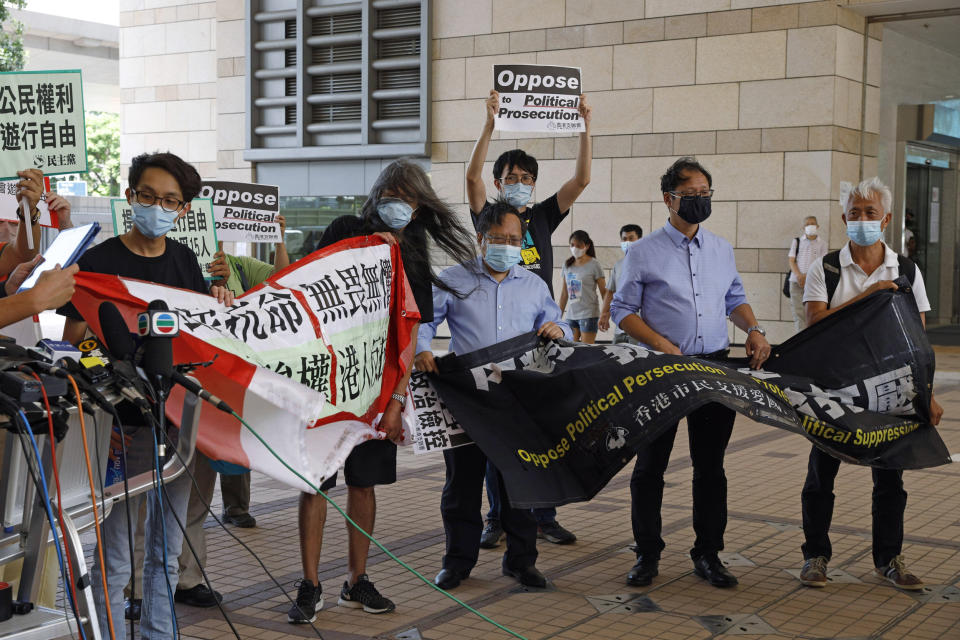China bars protest leaders from running in upcoming Hong Kong elections
Prominent Hong Kong protest leaders have been barred from running in upcoming elections, a move that is seen as a further sign of Beijing's tightening hold on the city after the passage of a controversial security law.
The announcement from the Hong Kong government followed the arrest on Wednesday of four people for allegedly advocating for secession from mainland China.
Joshua Wong, who became one of the best known faces of the pro-democracy movement that has gripped Hong Kong in recent years, confirmed to NBC News that he is among the 12 individuals barred from standing in September's Legislative Council elections.
The 70-seat Legislative Council helps to set laws in Hong Kong but just 35 of the seats are directly elected by the public.
In a statement, the Hong Kong government stated that Wong and the 11 others couldn't stand because they would be unable to uphold the basic law of Hong Kong based on their positions on issues such as advocating for democratic reforms and objecting to the national security legislation.
Prodemocracy group Studentlocalism, meanwhile, said their former leader Tony Cheung was one of four former members that police arrested late Wednesday. Hong Kong police confirmed that three men and one woman, all between the ages of 16 and 21, were being held after being accused of advocating in online posts for Hong Kong’s secession from China.
“Anyone who commits an unlawful act, whether in the real or in the cyber world, is liable to criminal prosecution,” Hong Kong police said in a statement.
Beijing imposed the contentious law just before midnight on June 30, banning what it calls secession, subversion, terrorism and collusion with foreign forces. Offences carry the possibility of up to life in prison.
Studentlocalism joined other groups in Hong Kong in rebranding social media accounts that could breach the new legislation before it came into force. Police accused the four of posting content that violated the legislation in July, despite the group’s Facebook page stating that all activities in Hong Kong had ceased on June 29.

Human Rights Watch condemned the arrests and urged governments to impose targeted sanctions on Hong Kong and Chinese government officials responsible for the new law.
"The gross misuse of this draconian law makes clear that the aim is to silence dissent, not protect national security," Sophie Richardson, China director at Human Rights Watch, said.
The imposition of the law has been one of a number of major flashpoints in recent months between China and western governments. China has been angered by outward displays of support from western allies towards pro-democracy groups demonstrating in Hong Kong.
The U.S., U.K., Canada, New Zealand and Australia all suspended their extradition treaties with the former British colony, accusing China of violating the terms of the handover agreement with Britain that returned the territory to Chinese sovereignty.
Under that agreement, China agreed to maintain a "one country, two systems" approach to Hong Kong that would guarantee the freedoms Hong Kongers enjoyed until 2047 — 50 years after the handover.
Britain further enraged Beijing by offering many Hong Kong residents a route to British citizenship after the controversial law was imposed.
The U.S. has continued to clash with China in recent weeks accusing Beijing of stealing U.S. intellectual property and blaming the country for the coronavirus pandemic. In a tit-for-tat, Washington ordered the closure of the Chinese consulate in Houston and, in response, the U.S. consulate in Chengdu was told to shutter.
Reuters contributed to this report.

